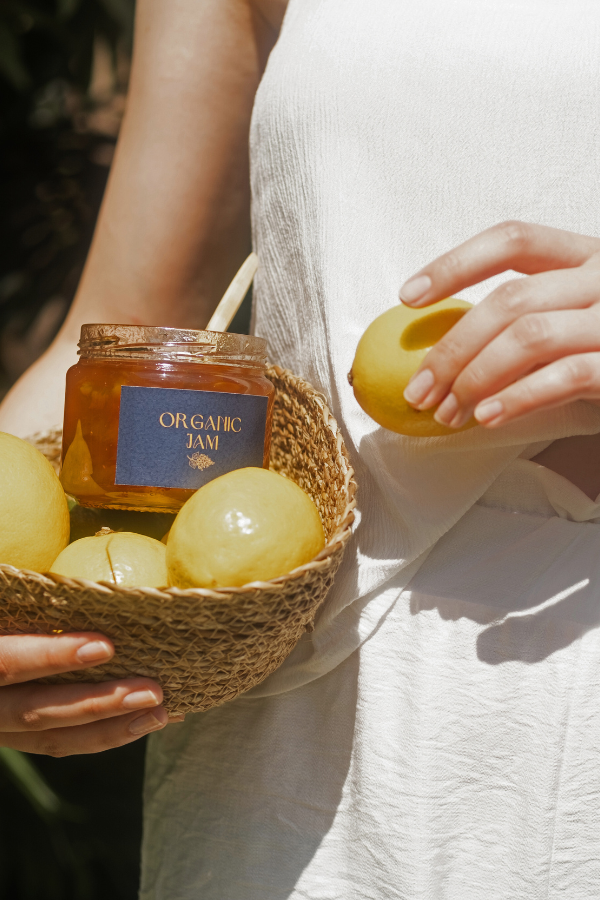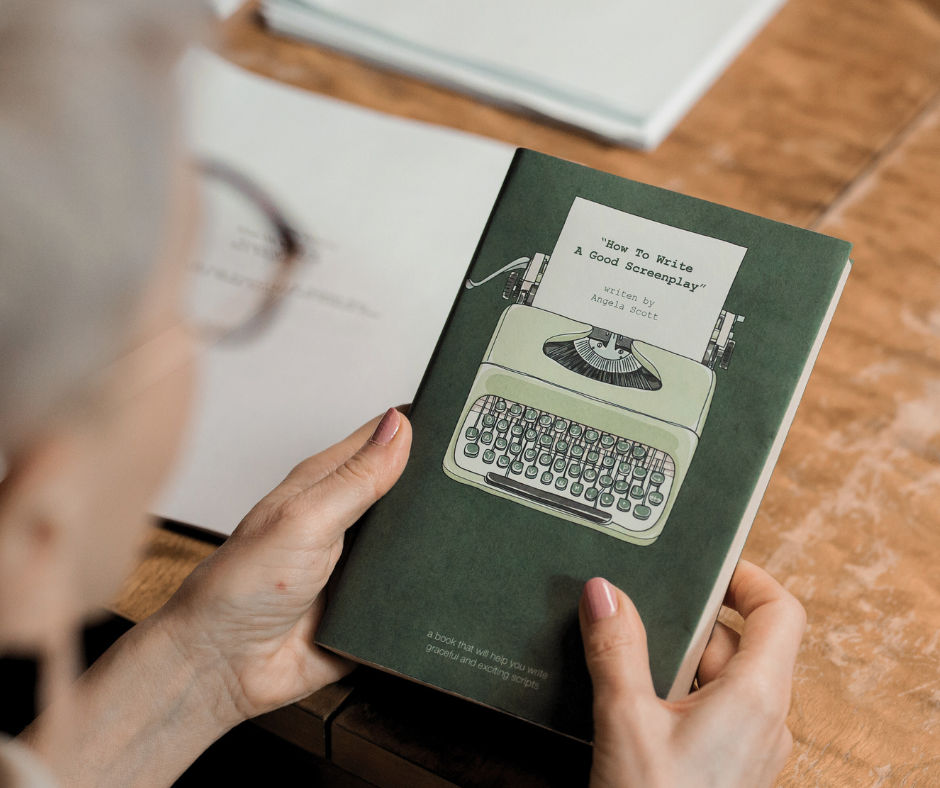
The Psychological Dangers of Commodifying All Your Creative Hobbies
Summary
Reflection Questions
Journal Prompt
As women in creative fields, sometimes we just can’t help transforming leisure activities into revenue-generating endeavors. But the “side hustle” mentality can get a bit out of hand, especially when you replace all purely recreational or restorative hobbies with products or services that bring in extra cash. While the economic incentives of monetizing personal interests cannot always be ignored (we want work that we love, after all!), this trend also raises psychological concerns. The pressure to generate income from leisure activities may impact mental well-being, intrinsic motivation, and the overall quality of leisure experiences. Monetization offers tangible benefits, but it might also subtly undermine the restorative and intrinsically rewarding aspects of hobbies, which are essential for holistic mental health. Read on to learn more about the psychological dangers of commodifying all your creative hobbies.
What Does “Commodifying Your Hobbies” Mean?

Commodification of hobbies refers to the process of turning leisure activities, traditionally pursued for personal enjoyment and relaxation, into opportunities for generating income. This transformation involves assigning a monetary value to activities that were primarily engaged in for intrinsic pleasure, thereby shifting their purpose from personal fulfillment to economic gain.
Historical Perspectives on Leisure Activities
Prior to the Industrial Revolution, the concept of hobbies as we understand them today was largely non-existent for the majority of the population. For most people, especially those in lower socio-economic classes, life revolved around subsistence activities like farming, artisanal work, and domestic chores. Leisure time was scarce and often limited to religious or communal festivals.
Industrial Revolution (18th and 19th Centuries)
The Industrial Revolution marked a significant turning point. With the rise of factory work and urbanization, there was a more distinct separation between work and personal time. This period saw the emergence of a working class with more defined working hours, leading to the allocation of time for leisure activities. However, it’s important to note that in the early stages of industrialization, working conditions were harsh, and leisure time was still limited.
Late 19th and Early 20th Centuries
As labor movements gained traction and reforms were enacted, working hours gradually decreased, leading to more free time for workers. This era saw the rise of organized leisure activities, including sports clubs, cultural societies, and recreational hobbies like gardening, reading, and various forms of crafting.
Post-World War II
The mid-20th century, particularly in the post-World War II era, marked a significant increase in leisure time for the masses. Economic growth, coupled with labor laws that reduced working hours and increased paid vacation time, allowed more people to engage in leisure activities. This period also saw a rise in consumer culture, with more products and services aimed at leisure activities becoming available.
Late 20th and Early 21st Centuries
Technological advancements, particularly the rise of digital technology and the internet, have further transformed leisure activities. Hobbies have become more diverse and accessible, ranging from digital gaming to online communities centered around specific interests. This era also marks the point where the commodification of hobbies began to take hold, enabled by digital platforms and social media.
Current Trends Influencing Hobby Commodification

In recent years, there has been a notable shift in this perspective, largely influenced by the advent of social media and digital platforms. These platforms have provided unprecedented avenues for showcasing and monetizing personal skills and hobbies.
The rise of influencer and “hustle” culture, online marketplaces, and digital entrepreneurship has led to a growing trend where hobbies such as photography, crafting, blogging, and gaming are increasingly viewed as potential sources of income. This shift is further driven by societal values that often equate success with financial achievement, leading many to seek additional income streams through their hobbies.
Hustle Culture’s Influence on the Monetization of Hobbies

Hustle culture promotes the idea that constant busyness and productivity are desirable and even essential for success. This mindset can lead individuals to view leisure time not spent on productive or financially rewarding activities as wasted or unproductive. Hustle culture has also shifted the perception of success.
Success is increasingly measured not just by one’s primary occupation but also by the ability to generate multiple streams of income, including from hobbies. There’s a growing admiration for entrepreneurship and the idea of being self-made. This admiration extends to the transformation of hobbies into businesses, further fueled by media portrayal of successful entrepreneurs who started with a simple hobby.
In many societies, economic pressures and the allure of financial gain drive the hustle culture. The rising cost of living, combined with a competitive job market, can motivate individuals to seek additional income sources, turning hobbies into side hustles. In many cases, this is a necessity.
We absolutely acknowledge that many women must turn their hobbies into side hustles in order to make enough money to support themselves and their families. In this article, we are merely pointing out the negative consequences of monetizing all creative hobbies.
The Underestimated Value of Leisure Activities

As Hope Reese writes in an article for Vox, “When we start to commodify our hobbies, it brings deadlines, demands, and accommodation.” However, Reese notes that “Having a leisure pursuit is ‘a relief’ from these stresses…since they’re ‘within your sole control.’” Having solely leisure activities, separate from any intention of making money, is important for several reasons, many of which are supported by scientific studies and full bodies of research.
These studies support the notion that leisure activities play a crucial role in maintaining mental health, resilience, and a sense of purpose, especially during challenging times. They highlight the importance of engaging in activities for pure enjoyment and relaxation, separate from any financial incentives or productivity goals. Let’s take a closer look at a few.
The Relationship Between Leisure Activities and Mental Health
One study published in “Applied Psychology Health and Well-Being” last year explored how engaging in leisure activities can promote mental health. It emphasized the role of resilience, suggesting that positive emotions from leisure activities enhance mental resources for coping with stress.
The research examined the changes in people’s leisure activities due to the COVID-19 outbreak and their impact on mental health. It was found that the reduction in leisure activities did not predict depressive symptoms, but the relationship between leisure and depression was mediated by resilience.
Leisure Activities Linked to Mental Health Benefits by Providing Time Structure
Another study published on PubMed, investigated how leisure activities contribute to mental health, especially in terms of providing a sense of time structure. The research focused on different groups, including employed, unemployed, and homemakers.
It found that for the unemployed, leisure activities impose mental health benefits through increasing individuals’ perception of spending their time effectively. Social leisure activities that provide a sense of daily structure were identified as particularly effective in improving mental health.
Intrinsic Motivation and the Importance of Leisure Activities

Deci and Ryan’s 1985 book Intrinsic Motivation and Self-Determination in Human Behavior offers valuable insights into the value of hobbies that are not commodified, especially in the context of Self-Determination Theory (SDT). Such hobbies fulfill basic psychological needs and are likely to contribute more positively to an individual’s well-being and personal growth than hobbies pursued primarily for extrinsic rewards. Let’s explore how concepts from their work relate to the value of leisure activities.
Intrinsic Motivation
One of the central tenets of SDT is the distinction between intrinsic and extrinsic motivation. Intrinsic motivation refers to doing something because it is inherently interesting or enjoyable. When hobbies are not commodified, they are more likely to be pursued for intrinsic reasons – for the sheer joy and satisfaction they provide, rather than for external rewards like money or fame. This aligns with the principles outlined by Deci and Ryan, emphasizing that activities driven by intrinsic motivation are more likely to be fulfilling and psychologically beneficial.
Autonomy
SDT posits that autonomy – the feeling that one’s activities are self-chosen and self-endorsed – is a critical component of intrinsic motivation. Non-commodified hobbies are typically chosen freely and pursued according to one’s own interests and preferences, thereby enhancing the sense of autonomy. This autonomous engagement is linked to higher levels of psychological well-being and personal growth, as suggested in Deci and Ryan’s work.
Competence

Engaging in hobbies can foster a sense of competence, one of the basic psychological needs identified in SDT. When people engage in hobbies, they often develop skills and expertise, leading to a sense of mastery and accomplishment. This sense of competence is more authentically experienced when the activity is not influenced by external pressures or expectations, as is often the case with non-commodified hobbies.
Relatedness
SDT also highlights the importance of relatedness – the need to feel connected to others. Many hobbies, especially those that are not commodified, involve social interactions and community engagement, fulfilling this need for relatedness. The social aspects of hobbies can contribute to a sense of belonging and community, which are crucial for psychological well-being.
Well-Being and Mental Health
Deci and Ryan’s research indicates that satisfying these basic psychological needs (autonomy, competence, and relatedness) leads to enhanced well-being and mental health. Non-commodified hobbies, being more aligned with intrinsic motivation and the satisfaction of these needs, can therefore play a significant role in an individual’s overall psychological health.
The Psychological Impacts of Commodification

The transition from engaging in hobbies for personal satisfaction to monetizing them introduces unique stressors and pressures. When hobbies become income-generating, they often demand greater time commitment, consistency, and a focus on profitability, which can lead to increased stress levels.
The pressure to meet market demands, maintain a certain level of quality, and generate consistent income can transform a previously relaxing activity into a source of anxiety and stress. This shift can be especially challenging for individuals who initially turned to their hobbies as a refuge from the pressures of their primary occupations.
One of the fundamental psychological impacts of commodifying hobbies is the potential loss of intrinsic motivation. According to Self-Determination Theory, activities driven by intrinsic motivations, like passion, interest, and enjoyment, are more fulfilling and contribute to well-being.
When hobbies are monetized, the focus may shift towards extrinsic motivations like financial gain, leading to a decrease in intrinsic joy and satisfaction derived from the activity. This shift can diminish the personal fulfillment that initially drew the individual to the hobby, potentially leading to a decrease in engagement and satisfaction.
The Loss of Leisure and Creativity

Leisure, characterized by activities undertaken voluntarily for enjoyment, relaxation, and personal fulfillment, plays a critical role in mental health. According to this study published in the Journal of Psychosomatic Medicine, “Individuals who engaged in more frequent enjoyable leisure activities had better psychological and physical functioning.”
They offer a psychological respite from the demands of daily life, providing opportunities for relaxation and mental recovery. The positive effects of leisure are well-documented, with research indicating that regular engagement in leisure activities can lead to decreased symptoms of depression and anxiety, and improved emotional regulation.
Impact of Commodification on Creativity
The commodification of leisure activities can adversely impact creativity. A key component of creativity is the freedom to experiment, take risks, and explore new ideas without external pressures or constraints. When hobbies are monetized, they often become goal-oriented and productivity-focused, which can inhibit this creative freedom.
The need to produce marketable and profitable outcomes can limit the scope for experimentation and reduce the willingness to take creative risks. This shift can stifle the innovative and exploratory nature that is central to creative endeavors, as noted in various studies on creativity and intrinsic motivation.
Necessity of Unproductive Leisure Time
The concept of unproductive leisure time—engaging in activities without any goal or expectation of productivity—is increasingly recognized as essential for mental health and well-being. Psychologists and mental health professionals advocate for the importance of downtime, where individuals engage in activities purely for enjoyment or relaxation.
This unstructured, unproductive leisure time is crucial for cognitive restoration and emotional balance. It provides a mental break from the constant focus on efficiency and productivity that characterizes much of modern life, allowing for mental recuperation and the replenishment of mental resources, as described in the psychological literature on stress and recovery.
Counterarguments and Discussion
Financial Benefits and Personal Growth
A common counterargument to the critique of hobby commodification is the tangible financial benefits and opportunities for personal growth it provides. Monetizing a hobby can lead to additional income, financial security, and even career development, which are significant advantages in today’s economy.
Furthermore, the challenges involved in turning a hobby into a profitable venture can foster skills like entrepreneurship, marketing, and self-discipline. These skills not only contribute to personal development but also enhance professional competencies, as evidenced in studies linking entrepreneurship with skill development and economic empowerment.
Healthy Side Hustle vs. Over-Commodification

Distinguishing between a healthy side hustle and the over-commodification of hobbies is crucial. A healthy side hustle typically involves a balance where the activity remains enjoyable and the individual retains control over their engagement level. It’s characterized by a hobby that generates income without overshadowing the intrinsic enjoyment or leading to burnout.
In contrast, over-commodification occurs when the pursuit of profit overtakes the original purpose of the hobby, leading to stress, a loss of passion, and potential negative impacts on mental health. The key difference lies in maintaining a balance where financial benefits do not come at the cost of personal well-being and enjoyment.
Balancing Monetization and Enjoyment
Striking a balance between monetization and personal enjoyment involves setting boundaries to ensure that the pursuit of income does not erode the intrinsic rewards of the hobby. This balance is crucial for sustaining both the financial and emotional benefits of the activity.
Maintaining clear distinctions between times for work and leisure, setting realistic financial goals, and prioritizing personal fulfillment over profit can help preserve the enjoyment derived from the hobby. It’s also important to periodically reassess one’s engagement with the hobby to ensure it continues to provide satisfaction and does not become another source of stress, as recommended by mental health professionals emphasizing work-life balance.
Mitigating the Negative Impacts of Monetizing Hobbies

To mitigate the negative impacts of commodifying hobbies, it is essential to maintain a healthy relationship with these activities. This involves consciously preserving the intrinsic aspects of the hobby that provide joy and relaxation. Individuals should engage in hobbies without the constant pressure of monetization, allowing for periods of leisurely involvement purely for the sake of enjoyment.
Engaging in diverse hobbies, some for monetary gain and others solely for personal satisfaction, can help maintain this balance. This approach is supported by psychological research emphasizing the importance of varied leisure activities for overall well-being.
Setting Boundaries and Preserving Leisure Time
Setting clear boundaries is crucial in separating leisure time from work, including work related to monetized hobbies. This might involve allocating specific times for hobby-related work and ensuring that other times are reserved for leisure activities without any financial or productivity objectives.
Preserving leisure time is vital for mental health and can prevent burnout. Experts in occupational health recommend regular breaks from work-related activities, including those involving monetized hobbies, to reduce stress and enhance work-life balance.
Alternative Approaches to Monetization
Instead of fully commodifying a hobby, individuals can explore alternative approaches to monetization that minimize psychological harm. This might include passive income streams related to the hobby that require less active, ongoing involvement, such as creating online courses, writing instructional ebooks, or selling designs or patterns.
These methods allow for income generation without the constant active engagement and pressure that can come with other forms of monetization. Such approaches can provide a balance, allowing individuals to reap some financial benefits from their hobbies while still preserving the joy and relaxation these activities originally provided.
Our Final Thoughts

Opting to commodify our hobbies has multifaceted and often unexpected implications. In fact, there are quite a few potential psychological downsides, including increased stress, pressure, and the erosion of intrinsic motivation and joy. We encourage our readers to approach the commodification of hobbies mindfully, considering the delicate balance between financial benefits and personal fulfillment. Reflecting on your own experiences, how might you preserve the joy in your hobbies while navigating the pressures of commodification?








